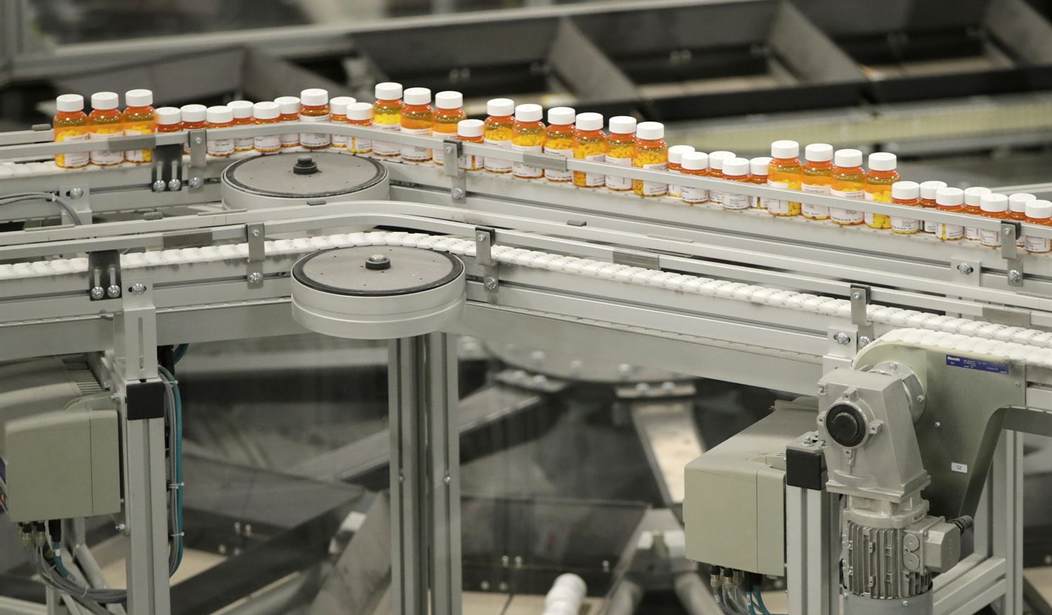With 3 million confirmed cases and 130,000 COVID-19 deaths in the United States, the eyes of the world are focused on American efforts to fast-track effective vaccines in record time.
As companies spend billions of dollars looking for a vaccine and cures for COVID-19 and doctors risk their lives treating patients, the recently-passed H.R. 1425 (the “Patient Protection and Affordable Care Enhancement Act”) would have a chilling effect on healthcare treatment and innovation in the United States during this crisis and beyond. In a rare moment of political transparency, House Democrats chose to vote down a requirement by Rep. Greg Walden (R-Ore.) that would ensure their new legislation did not prevent COVID-19 treatments and vaccines from coming to market.
To fully understand the issue, though, one must first understand the legislation itself. At the very heart of H.R. 1425 is a bailout of the failed Obamacare system of exchanges, mandates, and subsidies, signed into law by President Barack Obama in 2010. Unconstitutional in its original form, Obamacare has failed in its mission on nearly every front and requires constant taxpayer payouts to keep it afloat. This sorry cycle only succeeds in padding the pockets of big insurers, bloating overall healthcare costs in the U.S., and wasting taxpayer resources.
Alarmingly, this latest legislation includes a costly bevy of items on Democrats’ healthcare wish list—most notably, Medicare “negotiations.” As the largest buyer on the market with nearly-unchecked powers to tax and regulate, Medicare would be able to set arbitrary price caps on certain drugs. This federal fiat would inhibit companies’ ability to recoup investments, distorting the market and raising prices elsewhere. As a result, there’d be fewer lifesaving cures available to patients down the road.
Recommended
Now more than ever, the U.S. cannot afford any obstructions when it comes to medical innovation. With an array of promising vaccine candidates already in or prepared to enter final-stage human trials, it is up to policymakers to ensure companies have the funding and runway they need to get vaccines and other treatments to market quickly. COVID-19 is a disease without a cure, and the world will remain upended until one is found.
Problems with this sort of onerous federal approach predate the pandemic. It was not long ago when the Congressional Budget Office (CBO) released its report outlining the dangers of Democrats’ previous signature healthcare bill—H.R. 3, the Elijah E. Cummings Lower Drug Costs Now Act. In line with failed socialist systems abroad, the “negotiations” and other price controls included in the legislation were projected to result in 38 fewer new cures brought to market over the next two decades, a shocking number considering the Food and Drug Administration currently approves around 30 new drugs annually.
If the Democrats wanted to help lower prices and increase innovation in the healthcare system, they would’ve worked to pass Rep. Walden’s motion to recommit. Rep. Walden’s language was simple; it would have inserted language into H.R. 1425 ensuring that the bill would not “adversely affect research on, development of, or approval of any drug intended to treat or prevent infection with the virus that causes COVID-19.” That’s it.
Supporting innovation to contain COVID-19 is simple, but too many lawmakers refused to embrace innovation over government control. Taking a commonsense approach to healthcare instead of resorting to greater federal control could get the world through this pandemic and save millions of lives. But too many members of Congress blinked and chose federal fiat over dynamic market processes.
The U.S. (and the world) have a long way to go to defeat COVID-19. Mandating price controls and putting the government in charge of healthcare will only set back vaccine development and treatment efforts. For the sake of public health, H.R. 1425 should be rejected by the Senate with a strict “do not resuscitate” order.
Ross Marchand is the Vice President of Policy for the Taxpayers Protection Alliance.























Join the conversation as a VIP Member